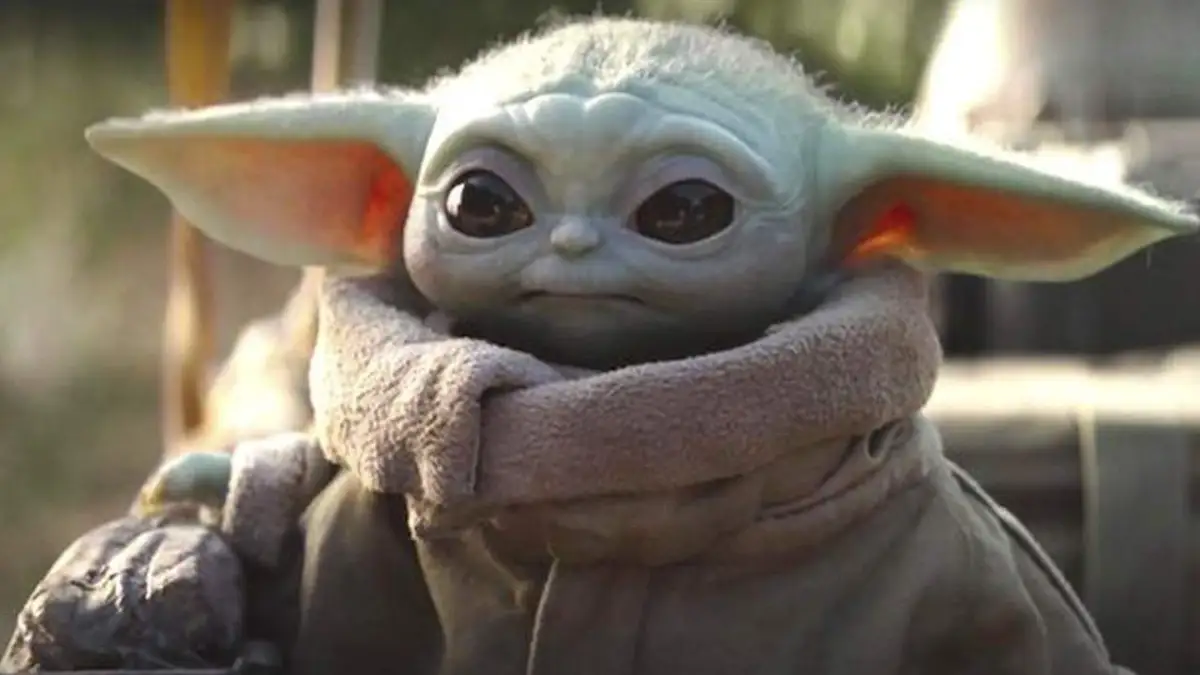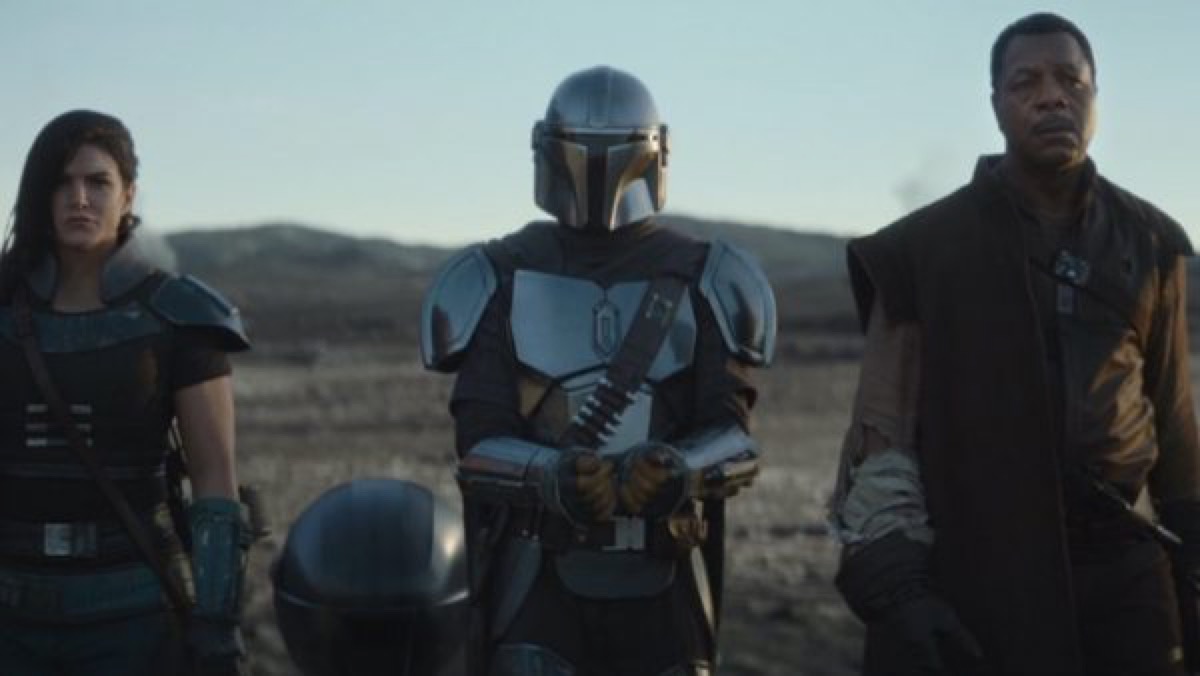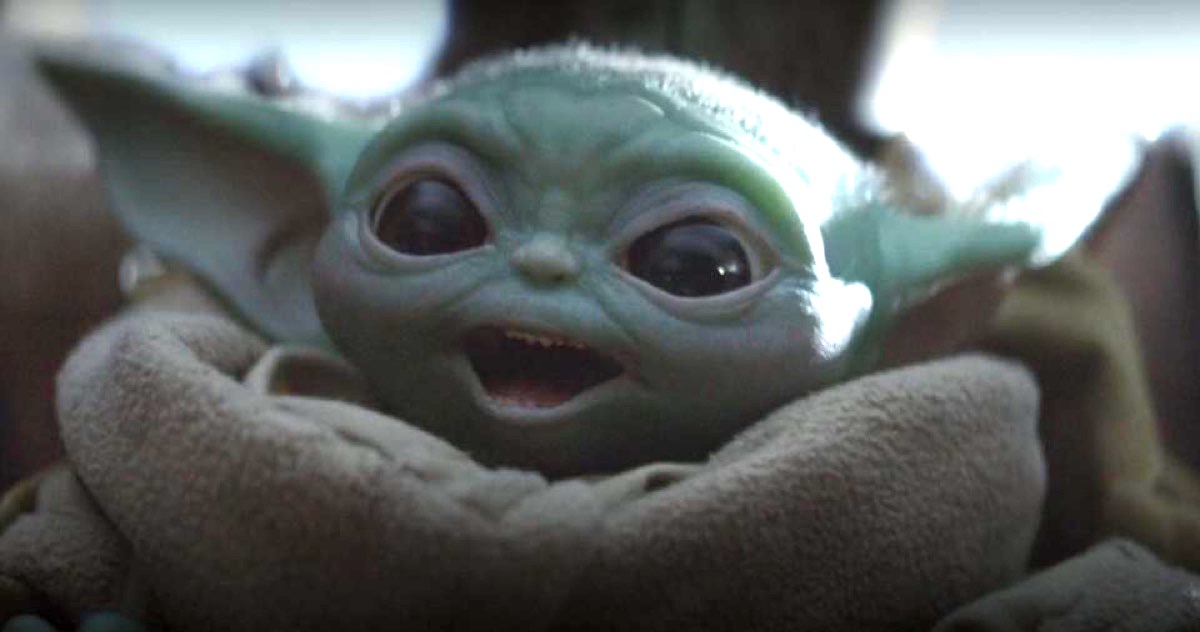I have to be honest: After the first episode of Disney+’s first live-action Star Wars series, The Mandalorian, I was a little confused why there was so much fuss about it. The IG-11 fight scene was super fun, but otherwise, the pacing felt slow, and I wasn’t very interested in our masked hero, Mando. It was a little concerning to me when my favorite moment of his was when a suicidal droid was threatening to blow him up.
And, when Baby Yoda became an overnight sensation, I was even more baffled. Sure, he was cute, like any slightly animatronic stuffed animal, but what else?
I kept on feeling like that, while nostalgic and adorable, the two leads didn’t have a lot going on. Shouldn’t at least one of them have more to express or so much more to say? Baby Yoda couldn’t speak and didn’t emote very well, and Mando was a man of few words, hidden behind a literal mask.
Let’s just say my hopes for The Mandalorian were not high, and they did not improve for most of the season.
While the show understood and captured the aesthetic of Star Wars, that’s not enough. Cute characters and great atmosphere, mixed up with some sparse, cool action scenes, can only carry a show so far. The Mandalorian’s main characters needed to be stronger, especially when fans were spending most of their time alone with the two of them.
But why was that such a concerning factor? I mean, there are definitely blander characters in other shows. Have you ever met Orange Is the New Black’s Piper Chapman? Well, my concern stems from the show’s inspirations and grow from there. Y’see, in classic Westerns (which Mandalorian is based on), the stoic, prickly hero normally gets a much more animated partner to play off of them and bring out their emotion. One classic example is Mattie and Rooster in True Grit, but other fantastical offshoots include the newly beloved Geralt and Jaskier, or everyone’s favorite comic duo, Shrek and Donkey.
For Mando, the character that brings the best out of him is Baby Yoda. But, it’s a little complicated, because Baby Yoda isn’t emotional, animated, asking him questions, or forcing Mando to see the beauty in the world. He’s just a cute baby eating frogs.
Mind you, I don’t think that’s inherently bad; it just means that the story doesn’t really have an emotional anchor. There isn’t a character balancing out Mando’s lack of emotion. Other than some sad droopy ears when leaving Sorgen and some small smiles, all Baby Yoda did for the first 6 episodes was follow people around and coo—absolutely adorable, yes, but not really what you’d call a large range of emotion. It really made me concerned for the longevity of the show, because eventually, fans would need real, defined characterization and emotion to attach themselves to, or Mando’s adventures would lose their luster.
But then, episode 7 happened.
Suddenly, the low-level emotional reactions from Mando and Baby Yoda were ramped up as they ran into old friends (and enemies). Mando had so much more emotion in his voice, and Baby Yoda did more than … be a cute baby. He now showed anger, confusion, and laughter—and not just a little, barely animated giggle. Full-out fits of it.
While dedicated fans could infer some deeper feelings from Mando and Baby Yoda from their actions in earlier episodes, this was the first time they expressed more explicit emotion. Mando, during IG-11’s farewell scene, was visibly and audibly heartbroken. And Baby Yoda? He looked sincerely vindictive when he thought Cara was hurting Mando, like he needed to protect his family.
Moments like those were emotional powerhouses, and it’s no wonder they left fans with so much affection and intrigue by the end of the finale.
And those moments didn’t just make the finale powerful; they also made every episode before it stronger in retrospect.
Now, Mando and Baby Yoda’s lack of emotion earlier wasn’t a production oversight, but a deliberate choice. The writers chose to grow them from bounty hunter and child prisoner into an emotionally attuned, inseparable duo. They didn’t learn how to express themselves until they were with each other.
Mando didn’t grow up sharing his emotions and caring for others, and neither did Baby Yoda. The young force-user spent half a century locked away, and Mando was raised by a code, not by parental kindness. Expressing themselves outwardly, instead of keeping everything in, was completely new territory for them. And by episode 7, after spending long enough bonding, they were finally blossoming into more well-rounded, emotional characters.
Mando and Baby Yoda’s ability to relate to and care for each other was a mirrored experience. Unlike those classic Westerns, with one character being the bright, animated one, the writers just used the bones of that trope to instead bring us this pair of emotionally stunted characters becoming better people together. But it was only episode 7 that really changed the game by letting their repressed emotions go free.
Now, these two definitely still have a long way to go. Baby Yoda has some darkness in him that he needs to explore, and Mando still hasn’t really dealt with the trauma of his childhood. But so far, they’ve done more for each other emotionally than anyone else has in over 50 years.
I went into this topic thinking I was going to just have to bash on how Baby Yoda was cute, but his expressions weren’t serving enough purpose—that if season 2 was to work, the directors and creators would have to work on the emotionality of his character. (Since I like to be a productive critic, I would’ve then recommended they get tips from Dark Crystal: Age of Resistance for great puppet expressions with CGI augmentation.)
And if we’re just talking about the first few episodes by themselves, I still stand by that statement. Baby Yoda did not emote enough to be that emotional anchor I thought he was being set up as; he was just a cute baby that existed.
But looking at the season as a whole? The series wasn’t what I expected. It was built on Western tropes and style, but it became something all its own in the long run, and despite my doubts, its two main characters were much more complex than I ever gave them credit for. Now, all I care about is how adorable it is that this mismatched duo has come so far—from the imprisoned, repressed people they used to be to the loving, chosen family they are now.
Hats off, The Mandalorian, because you surprised and impressed someone who totally thought she figured you out and proved her wrong. All things considered, I’m happy that I was.
(images: Disney)
Want more stories like this? Become a subscriber and support the site!
—The Mary Sue has a strict comment policy that forbids, but is not limited to, personal insults toward anyone, hate speech, and trolling.—











Published: Jan 21, 2020 11:06 am